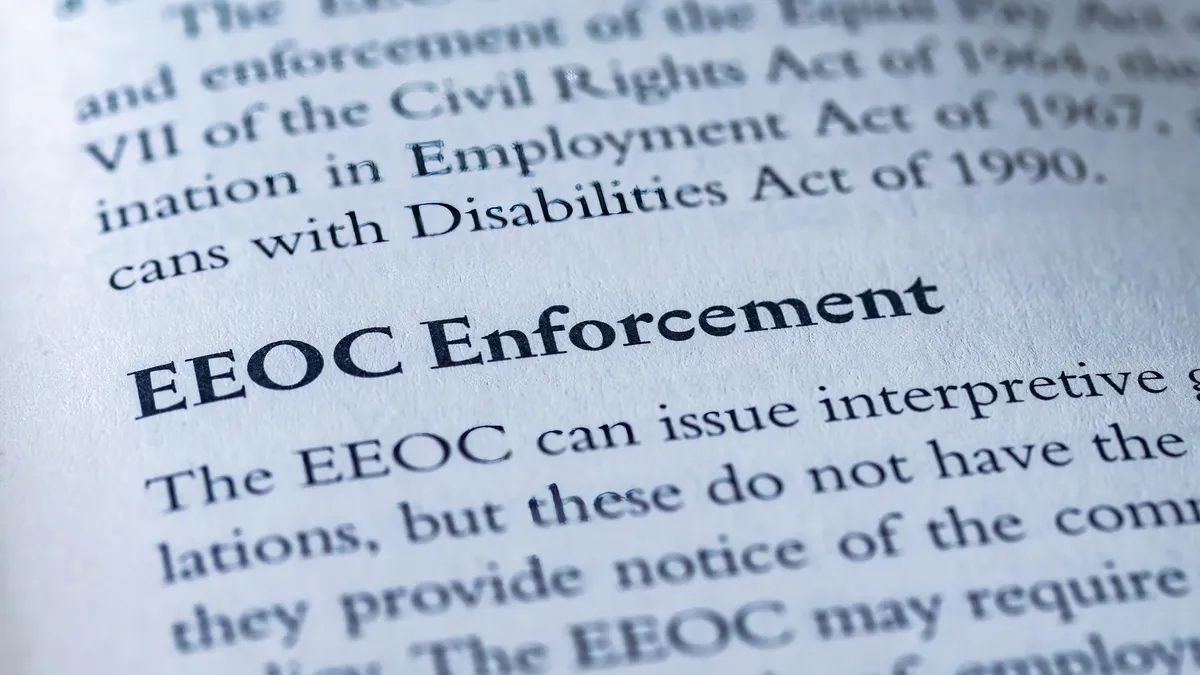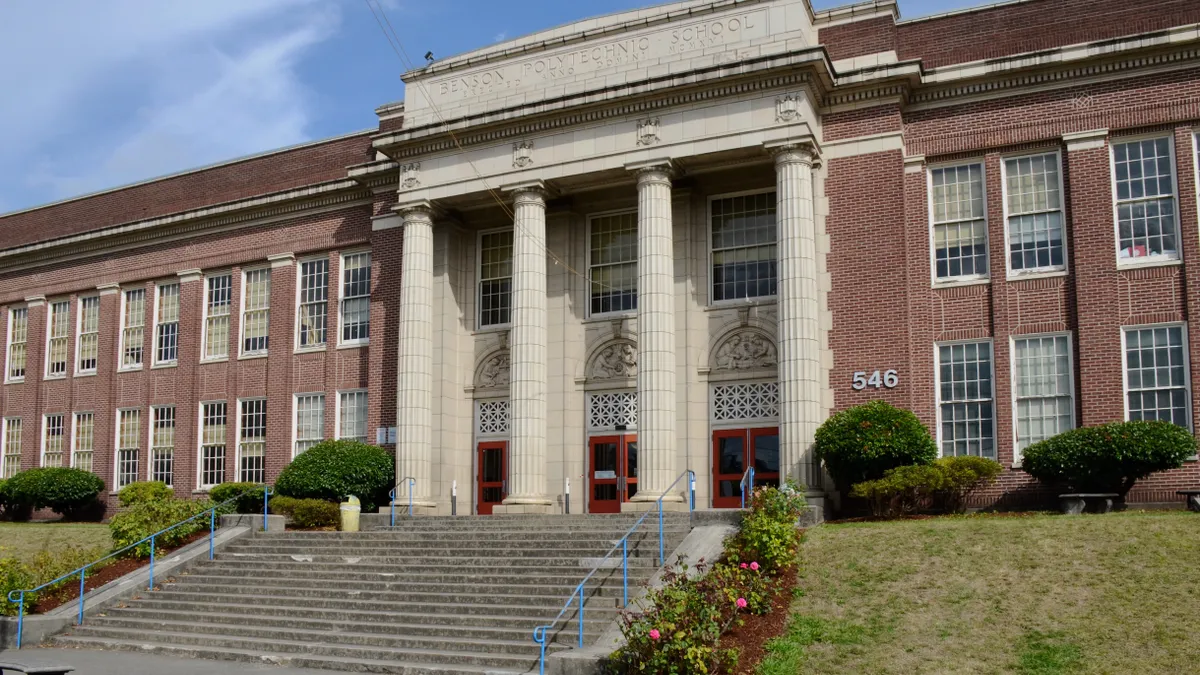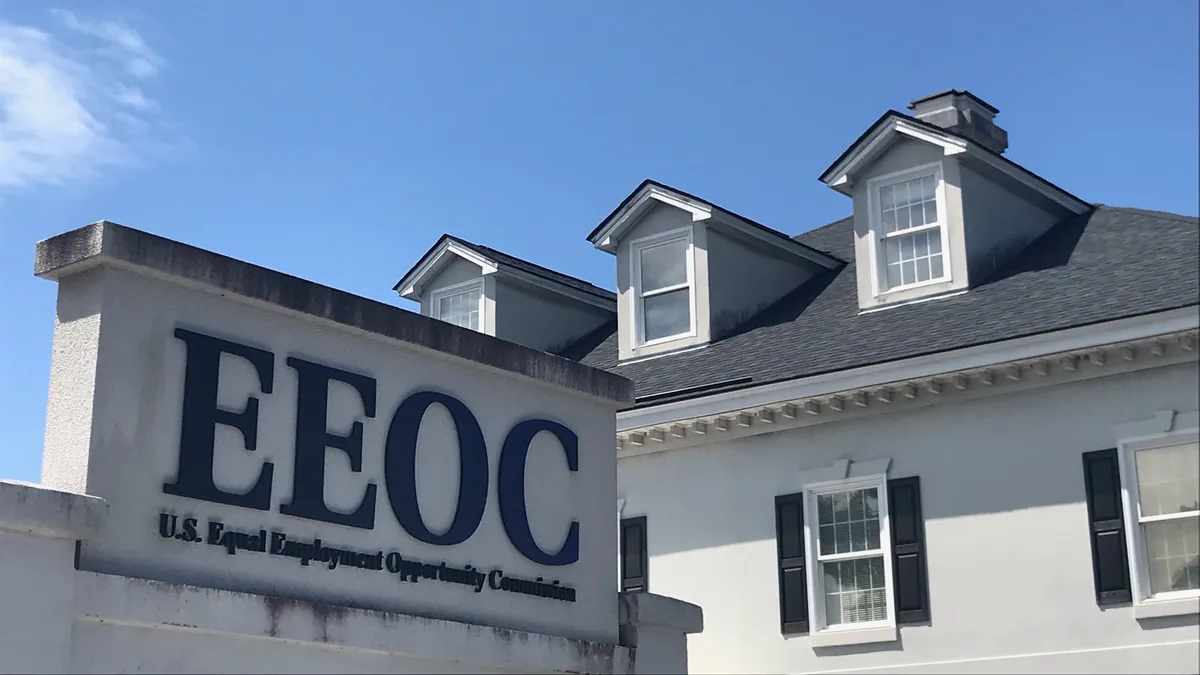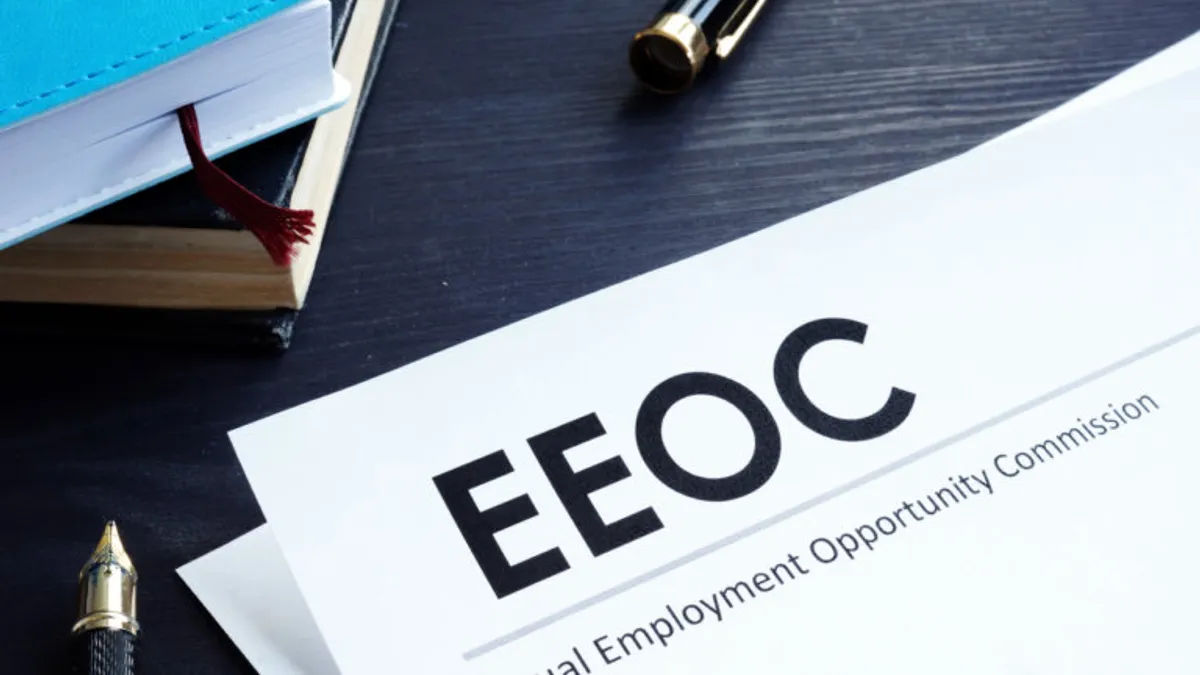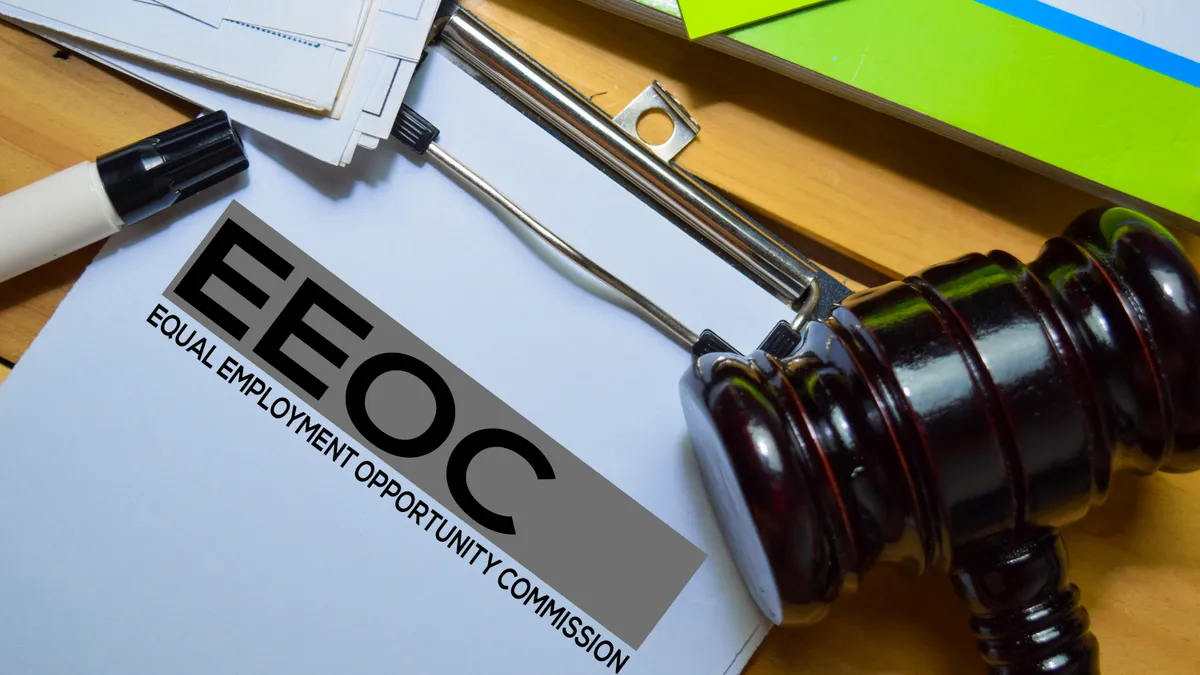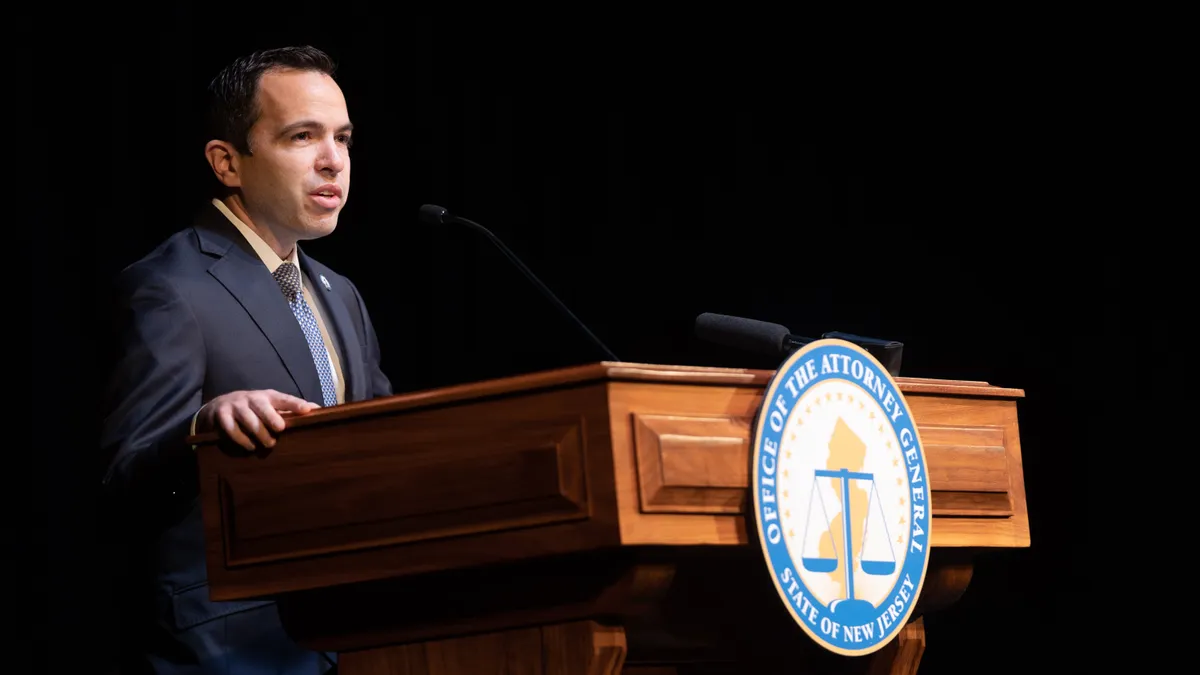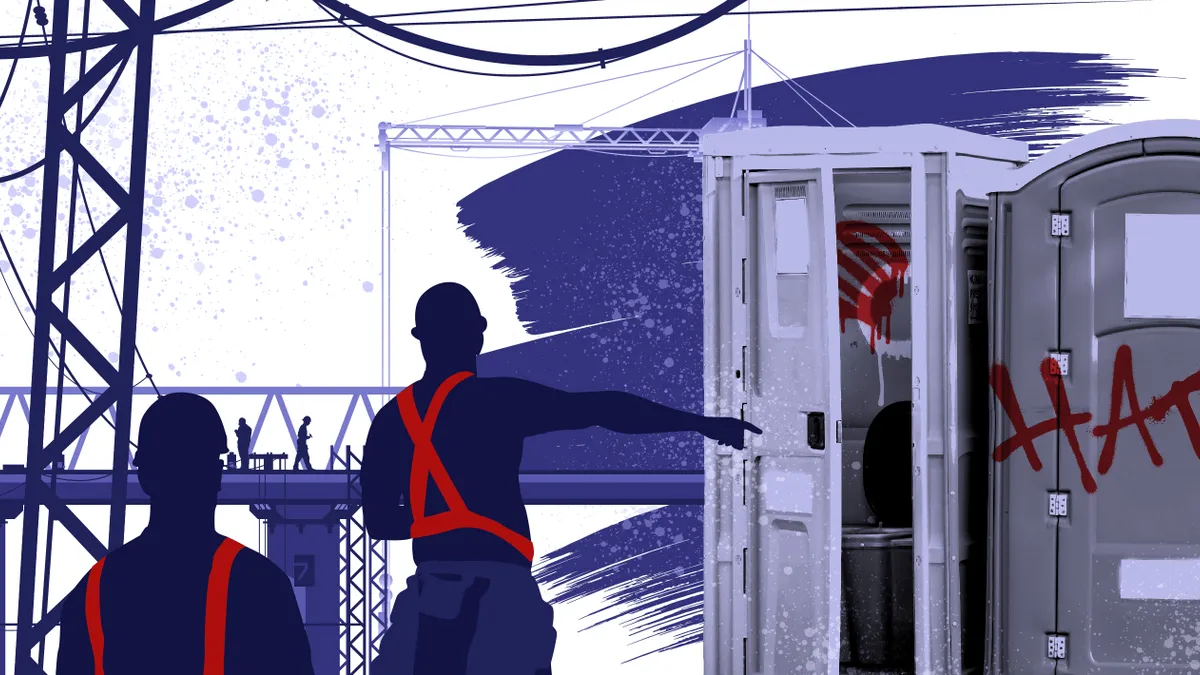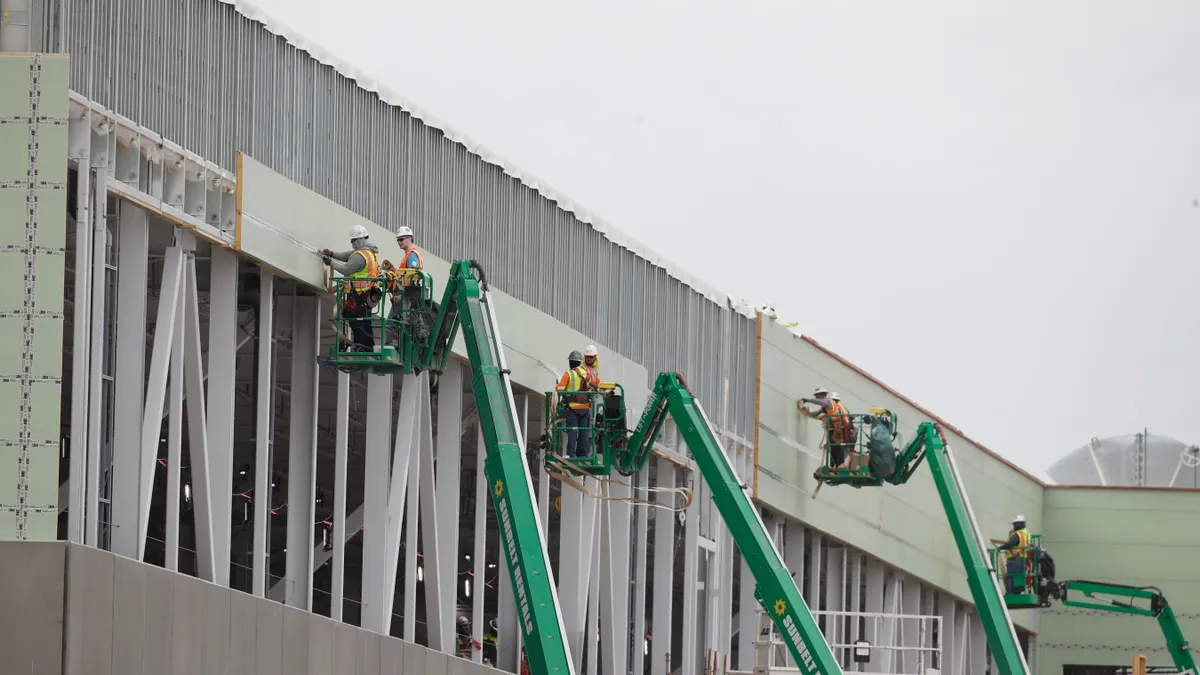Dive Brief:
- The Equal Employment Opportunity Commission won a nearly $2.7 million default judgment against a construction-focused staffing agency, according to a news release.
- The EEOC said the judgment resulted from its 2021 suit against Hanover, Maryland-based Green JobWorks for a pattern or practice sex discrimination in job assignments and assignment of work duties. The agency’s suit alleged the firm refused to hire female workers for demolition and laborer positions because of their sex, while assigning other work duties on the basis of sex, a violation of Title VII of the Civil Rights Act.
- “It has been almost 60 years since the passage of Title VII, yet many staffing agencies continue to believe that they can indulge discriminatory customer preferences and engage in stereotype-based selection practices with impunity — and they’re wrong,” said EEOC Regional Attorney Debra Lawrence in the release. “The EEOC will continue to carefully scrutinize the conduct of staffing agencies and employers in construction-related industries and the skilled trades, and the agency will take forceful action to redress violations of federal law.”
Dive Insight:
The March 16 judgment awarded 48 female workers more than $2.6 million in monetary relief, consisting of about $670,000 in lost wages with interest and just over $2 million in punitive damages for the company’s actions, according to the release.
Green JobWorks, whose website appears defunct, could not be reached for comment.
The award is one of the largest sums in a recent spate of actions the agency has taken against construction firms. Last May, EEOC held a hearing to investigate reports of discrimination and harassment in the industry.
More recently, it pinpointed construction as an industry of concern in its latest proposed strategic enforcement plan, the guiding document that lays out its enforcement priorities for the next five years.
“This SEP is telling the construction industry that the EEOC will be looking specifically at the construction industry – especially projects that receive federal funding – to enforce laws on workplace harassment and discrimination issues and, in particular, to help reduce obstacles to the hiring and advancement of women and people of color,” Cameron Hill, a construction and employment attorney in the Chattanooga, Tennessee office of Baker Donelson, told Construction Dive.
“The construction industry should expect the EEOC by way of its investigative role to focus on recruiting and hiring practices that implicate ethnic, racial, and religious groups, older employees, women and pregnancy-related issues, LGBTQI individuals and disabled workers,” Hill said.
Among other areas, Hill said the EEOC has signaled that it intends to look at:
- How jobs are advertised and new workers are brought in, including directed, focused internet advertising and “word of mouth” recruiting.
- How certain protected groups of workers are funneled into types of job responsibilities resulting in limited job opportunities and advancement.
- Who gets training and what kind of training it is.
- The more detailed aspects of job recruiting, like the application process, the paperwork required, and screening systems used to identify employee candidates.



